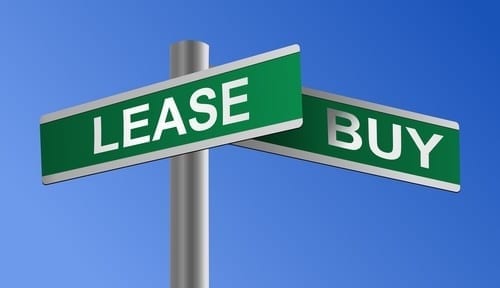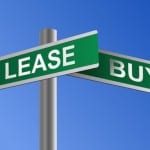
Feb
4
Understanding office equipment lease
Small business owners have been putting off upgrading or replacing equipment, machinery that there might be some pent up demand for leasing equipment in the coming years. Leasing has become the common practice to acquire equipment.
Since 2008, equipment leasing has fallen significantly. Researched done by the U.S. Small Business Administration (SBA) 8 out of 10 U.S. businesses lease all or part of their equipment.
Consider leasing what you need. Leasing equipment may be a better alternative to buying, depending on your situation and needs. Due to economic condition small business owners have had to put off many equipment purchases for the fear of the worse.
Leasing is appropriate for just about any business at any stage of development. For start-up businesses with no revenues, smaller leases—those of $100,000 or less—may be better managed on the personal credit of the owners—if they are willing to make the monthly payments.
Equipment leasing, on the other hand, in essence is not a loan. The lender buys and owns the equipment and then “rents” it to a business at a fixed payment for a set number of months. At the end of the lease, the business has several options. Most common is the dollar-buyout leases. This way there is no big surprise at the end of the term and ownership is transferred once it is paid off for one dollar.
With a lease, you actually only pay for using the equipment. So why lease? The answer is simple: By leasing equipment, you leave money in the bank that can be used for other purchases. Since lease payments are usually smaller than regular short-term loan payments, or lines of credit, or using working capital, you don’t have to pay out as much each month. Good for revenue generating equipment.
However, keep in mind that a lease is not cancelable like a bank loan or other debt financing. If you need to get out a standard loan you can sell the equipment and pay off the loan, or even refinance it. With a lease, you generally have to pay off the lease in full. So you have to be sure you make the payments when you enter into a lease. Decide whether short term lease or longer term is suitable for your situation.
So what kinds of equipment make the most sense for a small business to lease? According to research by the SBA, the most common items leased are office equipment, computers, and trucks and vehicles.
Leasing equipment offers a wide range of benefits, from consistency with expenses to increased cash flow. But perhaps the most significant advantage of leasing is the ability to maintain up-to-date equipment not to mention its tax benefits. Leasing allows you to easily and affordably add equipment or upgrade to a complete new piece of machinery to meet future needs. This lets you transfer the risk of being caught with obsolete equipment to the leasing company.
Here are some other benefits of leasing:
• Alternative to bank loan – Leasing is essentially an alternative to traditional bank loan and can be great for companies not able to obtain business loans which typically requires big down payment or additional collateral.
• 100% financing – In many cases, office equipment leasing requires no down payment except for the common first and last payments. This allows you to “finance” an entire purchase, including software, hardware, consulting, maintenance, freight, installation, and training costs.
• Ease and convenience – Applying for a lease is easy, and lease arrangements can be structured to meet business requirements. Equipment leases can range from $2,000 to $ 2million. For smaller amounts, you can complete a brief application and receive a final decision within days— called application only. Often with no financial reports or tax returns needed for Leases of less than $100,000. Due to current economic conditions banks and leasing companies have required detailed financial information from the business, and the leasing company conducts a more thorough credit analysis than it would have in the past.
• Flexibility – Lease terms range from 12 to 60 months, depending on the equipment type. Most leases can be structured so that payments are made with operating capital. This can eliminate or reduce capital budget delays. Leased equipment can be purchased later if capital becomes available. Plus, a percentage of the lease payments can be credited toward the purchase of the equipment also known as Rental Purchase Option (RPO).
• Fixed Term and Payment – Having fixed lease payments enables you to accurately predict the impact of equipment expenses on your cash flow.
• Conserves working capital – Leasing conserves your working capital by requiring only a minimum initial outlay of cash which covers shipping, taxes, labor and installation also known as “soft-cost.”
• Tax Lease Benefits- Operating leases are generally treated as a 100-percent, tax-deductible business expense paid from pre-tax earnings instead of after-tax profits. Dollar buyout typical can be amortize throughout the term and have some bonus depreciation advantages.
• Hedge against inflation – Lease payments are based on signed contract at the current value. And unlike bank lines of credit with fluctuating rates, your payments are fixed regardless of what happens to the market tomorrow, making it easier to budget, forecast and grow.
Working with leasing companies directly or captive gives you options. Captive financing is when the company selling the equipment offers their in-house financing. Working with leasing company with which it does business, and, usually, with more than one leasing company is knows as vendor financing. So be sure to get quotes from a number of funding sources. Captive is not always the best.
Additionally, make sure you understand with whom you’re dealing. There are a lot of leasing brokers —the person who simply structures deals. They can have a lot of options especially if there are some credits, asset or other business issues. Brokers’ get them financed through any of the leasing companies he or she works with usually for all credit types. Brokers sometimes is the better choice, so make sure to find one that can offer multiple offers for you budget.
Brokers can be beneficial because they have valuable insight about the leasing market and can help you find the best leasing solution for your needs. But as when dealing with any type of salesperson, you are responsible for handling the due diligence. Do your homework to ensure you negotiate the most favorable lease agreement for your company. Read the contract to make sure that is what you signed and don’t get fooled about the FMV trick where you are told dollar buyout when the contract is FMV. You will be stuck with a huge bill at the end of the term and can be huge just to own it.
Always Liberty Capital is ready and willing to help. Good luck! Call us (888) 511-6223 if you’re planning to lease your next office equipment.
Article provided by Liberty Capital Group, Inc. All Right Reserved. (c) 2012

